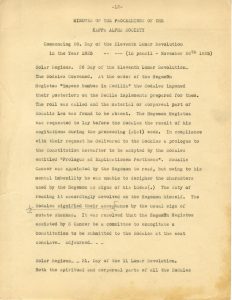U.S. Senators under investigation for dumping ill-fated stocks ahead of the Coronavirus crisis
U.S. Senate Photographic Studio
Senator Richard Burr recently stepped down as the Chairman of the Senate Intelligence Committee. Image courtesy of WikiCommons.
May 26, 2020
On May 14, Republican Senator from North Carolina, Richard Burr, stepped down from his position as Chairman of the Senate Select Committee on Intelligence. This occurred in conjunction with an FBI investigation into Burr’s timely sale of stocks that plunged at the outset of the COVID-19 pandemic, according to The New York Times. Investigators seized Senator Burr’s phone, and Republican Senator from Florida, Marco Rubio will be taking his place as acting chairman according to CNN.
In February of 2020, Senator Burr, as well as Democratic Senator Diane Feinstein from California, Republican Senator Kelly Loeffler from Georgia, and Republican Senator James Inhofe from Oklahoma, all members of the Intelligence Committee, sold large quantities of ill-fated corporate shares, according to the Times. The sales occurred in succession to classified briefings about the scale at which this crisis might progress. All have denied allegations of insider trading, the Times reported. Senator Loeffler’s husband is the CEO of the New York Stock Exchange, and Senator Feinstein claims that her husband controls their portfolio, according to the Times.
The webpage of the Senate Select Committee on Ethics states, “members, officers, and certain employees of the United States Senate, related offices, and candidates for the Senate are required by Title I of the Ethics in Government Act of 1978, as amended (the “Act,” 5 U.S.C. app., Section 101 et seq., also adopted as Senate Rule 34) and Senate Rule 41.1 to file Financial Disclosure Reports with the Secretary of the Senate, Office of Public Records.” Members of Congress are required to disclose their assets under federal law, and are forbidden from acting on information outside the public domain that they might receive while fulfilling their duties, according to the STOCK Act of 2012. Burr was one of three senators to vote against the bill.
Government officials tend to keep their portfolio in a blind trust to prevent a conflict of interest during their tenure. The Senate Ethics Committee published a booklet in 2015 that portrays an exemplary blind trust and how it should be managed. The document states that trustees must be “independent” of the grantor, the Committee must know how the trustee was selected, and the said person must be approved by the Ethics Committee. The booklet further states that “an ideal trustee is usually a financial institution, such as a bank or trust company. Generally, a financial institution will be considered independent if the grantor and the grantor’s family have no relationship with the proposed trustee other than savings, checking, or other types of similar accounts.” This contradicts Feinstein’s deniability that her husband’s management of their assets was within reason.
The New York Times reported that Loeffler and Feinstein have both been interviewed by investigators from the Justice Department and the Securities and Exchange Commission.







